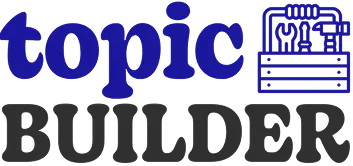Securing a business loan is often a crucial step for entrepreneurs looking to grow their companies, whether it’s for expansion, inventory, or daily operations. However, understanding the different types of loans, qualification requirements, and how to navigate the application process can be overwhelming. With the right knowledge, you can find the right funding option to support your business goals and ensure your financial health remains strong.
Types of Business Loans Available
There are various types of business loans available, each designed to meet different needs. Some of the most common types include term loans, which are typically used for long-term investments or major purchases, and lines of credit, which offer flexible access to funds for short-term needs. Equipment loans are another option, specifically for businesses needing to purchase or lease equipment.
Understanding the purpose of each loan type helps you select the right one for your business. Be sure to assess your funding needs carefully and choose a loan that aligns with your financial situation and business objectives. The terms, repayment schedules, and interest rates will vary depending on the type of loan you choose.
How to Qualify for a Business Loan
Qualifying for a business loan can be a rigorous process that depends on several factors, including your credit score, business revenue, and years in operation. Lenders want to ensure that your business is financially stable and capable of repaying the loan. Typically, they’ll require proof of income, financial statements, and details of your business’s cash flow.
While having good credit can help secure better loan terms, newer businesses may face more challenges in qualifying for loans. In such cases, you might need to explore alternative funding sources, such as microloans or peer-to-peer lending, which may have less stringent qualification criteria.
Understanding Interest Rates and Loan Terms
Interest rates and loan terms are critical factors when considering a business loan. Interest rates can vary widely based on your creditworthiness, the type of loan, and the lender. Some loans may offer fixed interest rates, while others may have variable rates that can fluctuate over time.
Loan terms refer to the duration in which you’ll repay the loan, typically ranging from a few months to several years. Longer terms can offer lower monthly payments, but they may also result in higher overall interest costs. It’s essential to balance your monthly cash flow with the repayment terms to ensure that the loan fits comfortably within your business budget.
Secured vs. Unsecured Loans
When applying for a business loan, you’ll typically face the option of choosing between secured and unsecured loans. A secured loan requires you to pledge collateral, such as property or equipment, as security for the loan. This type of loan may offer lower interest rates since the lender has an asset to claim if you default on the loan.
On the other hand, unsecured loans don’t require collateral, but they often come with higher interest rates due to the increased risk to the lender. Unsecured loans are typically more difficult to obtain and may require a higher credit score or a proven track record of business success. It’s important to carefully evaluate the risks and benefits of each option based on your current financial situation.
Alternative Funding Sources for Small Businesses
In addition to traditional business loans, small business owners may also consider alternative funding sources. Crowdfunding, for example, allows businesses to raise capital from individual backers in exchange for rewards, equity, or other incentives. Venture capital and angel investors are also viable options for businesses with high growth potential.
These alternative funding sources often come with their own set of requirements and expectations. For instance, venture capitalists typically invest in businesses with scalable business models and high growth potential, and they may require equity in return for funding. Understanding these options can help you determine which path is best suited to your business needs.
The Loan Application Process: What to Expect
The process of applying for a business loan typically involves several steps. First, you’ll need to gather all necessary documentation, including financial statements, tax returns, business plans, and proof of collateral if required. Lenders will use this information to assess your business’s financial health and ability to repay the loan.
Once you’ve submitted your application, the lender will review your documents and may request additional information. If approved, you’ll be given the loan terms, including the interest rate and repayment schedule. Be sure to read the fine print carefully before accepting the loan to ensure that you understand the terms and conditions.
Securing the Right Loan for Your Business Growth
Choosing the right loan for your business is a crucial step in fueling your growth and success. Understanding the different loan types, qualification requirements, and terms will help you make an informed decision that aligns with your financial needs and business goals.
Whether you choose traditional financing or explore alternative funding sources, the key is to plan carefully and ensure that the loan fits into your long-term business strategy. With the right funding, your business can achieve new milestones and continue to thrive in a competitive marketplace.

